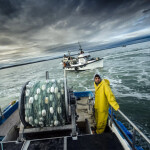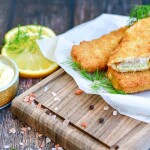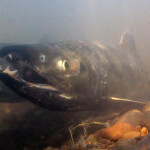Governments and seafood associations are beginning to react publicly to the Russian trade ban invoked yesterday against the west, but some groups are waiting for more details to emerge before commenting or making any moves.
The trade ban was in direct retaliation for economic sanctions from several western nations in an attempt to pressure Russia to stay out of the escalating conflict in Ukraine. The ban was light on details, but Russian Prime Minister Dimitry Medvedev said in a cabinet meeting that it would include seafood, according to Bloomberg News. Other reports also quote Medvedev as saying the bans apply to Norway, the EU, Canada, the United States and Australia.
Norway, which sold 100,000 metric tons of farmed salmon to Russia over the past year, arguably has the most to lose. According to various media reports in Norway, stock prices in major Norwegian salmon farming firms such as Marine Harvest have dropped sharply in the wake of the news. Government officials have said they are waiting to see a specific list of banned products before making any decisions.
In Australia, local media is reporting Prime Minister Tony Abbott has called Russia a “bully” in the wake of the ban and is recommending stronger Australian sanctions against Russia. Industry groups in Australia have not responded to a request for comment.
In Europe, a spokesman for the European Commission said the EU “regrets” the ban, but that the ban won’t change its position on Ukraine and Crimea.
“This announcement is clearly politically motivated,” the spokesman said in a statement. “The commission will assess the measures in question as soon as we have more information as to their full content and extent. We underline that the European Union's restrictive measures are directly linked with the illegal annexation of Crimea and destabilization of Ukraine. The European Union remains committed to de-escalating the situation in Ukraine. All should join in this effort.”
Bertie Armstrong, chief executive of the Scottish Fishermen’s Federation, said the federation is “extremely concerned” about the ban’s impact on mackerel exports.
“Russia is a very important export market for Scottish mackerel, and the denial of access would have extremely serious implications for both mackerel fishermen and the onshore processing sector,” Armstrong said. “We will, of course, be keeping in close contact with the Scottish and UK Governments to monitor the situation as it develops, and also to discuss any support measures for the Scottish seafood sector should they be required. The solution to this international dispute is for Russia to come to the negotiating table.”
In the United States, Gavin Gibbons, spokesman for the National Fisheries Institute, told SeafoodSource the institute is still discussing the ban with its members, and as of Friday morning was not prepared to comment on the ban yet.
Keep checking SeafoodSource for all the latest news on Russia’s ban on seafood exports





